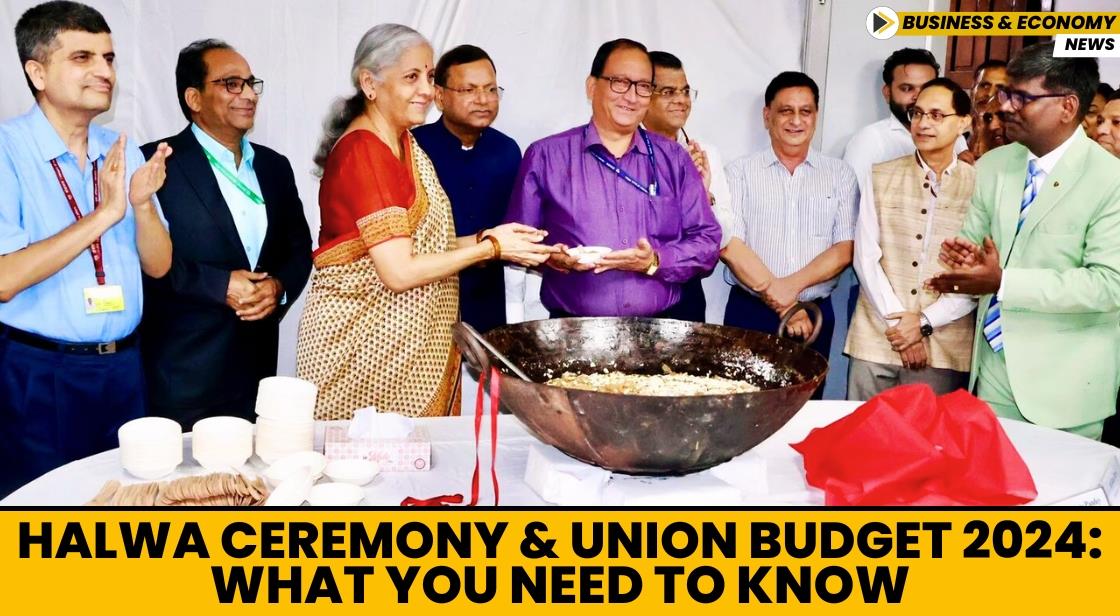Halwa Ceremony and Union Budget 2024: What You Need to Know

News Synopsis
The Union Budget of India is a highly anticipated event, outlining the government's financial roadmap for the coming year. This year, the customary Halwa ceremony, held on July 17th, 2024, marked the commencement of the final stage of preparations for the much-awaited Union Budget 2024. This ceremony signifies more than just the start of printing budget documents – it's a tradition steeped in history and symbolic importance.
What is the Halwa Ceremony?
True to its name, the Halwa ceremony involves the preparation of a traditional Indian sweet dish called halwa in a large cauldron (kadhai) within the confines of North Block, the seat of India's Ministry of Finance. The Finance Minister herself participates in the stirring of the halwa, symbolizing the collective effort and dedication of the ministry officials who have tirelessly worked on crafting the budget.
Significance of the Halwa Ceremony
The Halwa ceremony serves two critical purposes:
-
Commencement of Budget Printing: This traditional ritual marks the official start of printing the budget documents. Following the ceremony, the basement of North Block transforms into a secure printing press, churning out the final versions of the budget.
-
Lock-in Period for Secrecy: More importantly, the Halwa ceremony signifies the beginning of a stringent "lock-in" period for finance ministry officials involved in the budget process. To safeguard the confidentiality of the budget details and prevent any leaks, these officials are essentially quarantined within the North Block premises from the ceremony's conclusion until the budget's presentation in Parliament.
This stringent lockdown is a direct outcome of a historical incident. In 1950, a portion of the Union Budget was leaked during the printing process, leading to the resignation of the then Finance Minister, John Matthai. Since then, the "lock-in" period has been rigorously enforced to maintain the secrecy of the budget until its official unveiling.
A Tradition of Anticipation and Secrecy
The Union Budget holds immense weight for various stakeholders, from salaried individuals and students to senior citizens, women entrepreneurs, and business leaders. Everyone eagerly awaits the Finance Minister's announcements, hoping for favorable measures such as tax breaks, increased allocations for specific sectors, or GST exemptions.
The Halwa ceremony serves as a pivotal prelude to the budget presentation, underscoring the meticulous work and high stakes involved in this annual fiscal exercise. This unique tradition reflects the importance placed on transparency and accountability in India's financial roadmap.
Conclusion
The Halwa ceremony is more than just a tradition; it is a significant milestone in the Union Budget preparation process. This event underscores the meticulous efforts of the finance ministry and highlights the importance of security and confidentiality in budget preparations. As the first full budget under Modi 3.0, the anticipation and expectations are immense, with various sectors eagerly awaiting potential tax breaks, GST exemptions, and increased allocations.
The ceremony's stringent lockdown measures ensure that the budget details remain secure until the official presentation. This celebrated prelude to the Union Budget not only honors tradition but also sets the stage for the crucial financial announcements that will shape India's economic landscape in the coming year. As we approach the budget presentation on February 1, the nation waits with bated breath, hoping for favorable outcomes that will drive growth and prosperity.
You May Like









